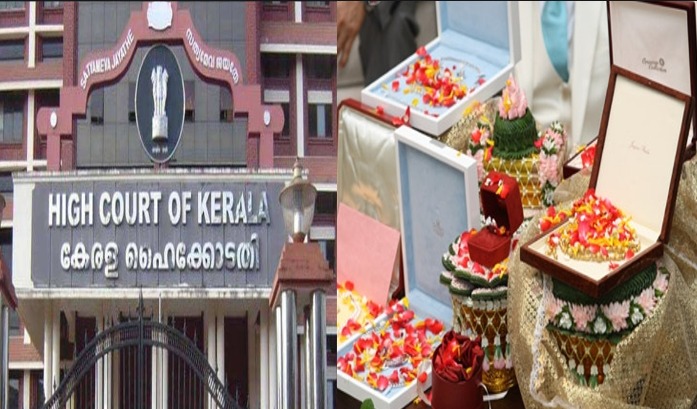
The Kerala High Court recently ruled that keeping gold ornaments in a locker in the wife’s name does not constitute entrustment of the ornaments to the husband or the husband’s family, and thus recovery cannot be initiated simultaneously with divorce proceedings.
A division bench of Justice Anil K Narendran and Justice P.G. Ajithkumar ruled that in the absence of sufficient evidence that the gold ornaments given to the wife at the time of marriage were entrusted to her husband or her in-laws, the gold ornaments could not be recovered under the Prevention of Dowry Act, 1961.
The court was hearing an appeal against a family court order in which the wife had filed a petition for the recovery of money and gold ornaments after the couple’s marriage had been dissolved. The family court ruled that there was insufficient evidence of appropriation or entrustment of gold to make it dowry.
The appellant’s advocates C Rajendran and KR Ranjith contended that because the money and ornaments were given in connection with the marriage, they constituted dowry. The evidence for this would be scant because such an exchange would not take place publicly because the practise is illegal, according to the petitioner.
The court first considered whether a decree could be sought to recover money and gold ornaments given as dowry, as such a transaction would be void when the practise is prohibited by law. The taking or giving of dowry is prohibited under Section 7 of the Dowry Prohibition Act. However, under Section 6 of the Act, those who receive dowry are required to return it to the beneficiary. The court observed that Section 6 of the Act’s legislative intent was for the woman to be able to recover the money/gold from the person entrusted with the dowry.
The court noted that once it is established that the wife entrusted the gold ornaments to the husband or his family, the burden of proof shifts to the latter to explain what happened to them. However, in this case, the gold ornaments were kept in a locker in the wife’s name. The wife claimed that this was later appropriated by the husband. However, due to a lack of evidence, the court refused to accept this contention.
The court observed that it is customary for the bride to bring her gold ornaments to her husband’s home and entrust them to her husband or in-laws, with the exception of a few ornaments for daily wear. The wife’s testimony alone could establish this entrustment. However, only if this entrustment is made is a trust established, and the husband and in-laws are obligated to return the same. In such a case, the wife would be successful in reclaiming the gold ornaments entrusted to her under Section 6 of the Act. The court found that this entrustment was lacking in the current case.
Keeping the appellant’s ornaments in a locker in her own name does not constitute entrustment of the same to the respondent. The nature of the evidence makes it impossible to conclude that the ornaments, in whole or in part, were entrusted to the respondent. The appellant can only claim the return of the gold ornaments if the fact of entrustment to the respondent is proven.
The court refused to overturn the family court’s findings, agreeing that there was insufficient evidence to show entrustment of gold ornaments, and thus it could not be recovered by the wife under the Dowry Prevention Act.




